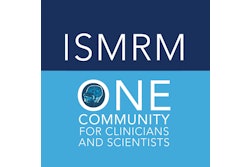
The International Society for Magnetic Resonance in Medicine (ISMRM), the American Association of Women Radiologists (AAWR), and the American Society for Radiation Oncology (ASTRO) are the latest radiology and radiation oncology societies to issue statements on racial injustice.
ISMRM President Lawrence Wald, PhD, and Equity Officer Dr. Elizabeth Morris said that they condemn the murders of Mr. Floyd, Ms. Taylor, and Mr. Arbery and encourage understanding of the rage that has precipitated the outpouring on the streets of most major cities.
"We support peaceful protest understanding it is the rightful expression of outrage over social injustice; however, we also encourage cessation of violence before more people are hurt or killed," they wrote.
Wald and Morris said that they have committed to ensuring a safe environment for the ISMRM's collaborative community to interact in support of scientific and clinical discovery.
"We must further commit to meet our responsibilities as global citizens, supporting efforts to promote social justice," they wrote.
In a statement on equality, the AAWR said that it recognizes and mourns the tragic and unnecessary loss of George Floyd's life and the lives of countless others. The association said it recognizes the need for change and adds its voice to the call for reform to systemic inequities in social justice. It noted that it was founded on principles of promoting and embracing equity, diversity, and inclusion for all.
"We offer our support in a movement to overcome pervasive discrimination and inequity," the AAWR wrote. "We stand united with the radiology and radiation oncology community, advocating and working for equality."
ASTRO Chair Dr. Theodore DeWeese said in a statement that the death of Mr. Floyd illuminates another formidable crisis that links our social and healthcare systems.
"Specifically, racial injustice remains pervasive in the United States and around the world," DeWeese wrote. "We must confront the reality that people of color, particularly African Americans, are at a higher risk of death because of endemic poverty, poor access to high-quality education and healthy nutrition and inequities in the health care system, including the lack of optimal support systems and safety nets."
He added that ASTRO is dedicated to diversity and inclusion as a core value of its strategic plan.
"This essential principle transcends the notion of solely being applicable to our members," he wrote. "It is our duty as physicians to oppose racial injustice of any kind and to work peacefully and purposefully to address those wrongs within our power. This is an inviolable part of our social contract as physicians."
As the largest professional medical society for radiation oncologists, ASTRO has a voice and an obligation to impact society through its work and decisions, according to DeWeese.
"Our collective voice can help drive the change we seek when we speak out loudly against any form of racial injustice, including the most virulent form, health disparities based on race," DeWeese said.
ASTRO stands in unity with the Council of Medical Specialty Societies and the 800,000 physicians across 45 medical specialties that deplore the negative impact of racism in our nation and of racial inequities in our healthcare system, DeWeese said.
"Let us reaffirm that ASTRO members stand with all those who seek justice and equality and that we will work to reduce the inequities in our health care system that have been so dramatically highlighted during recent events," he wrote.



















